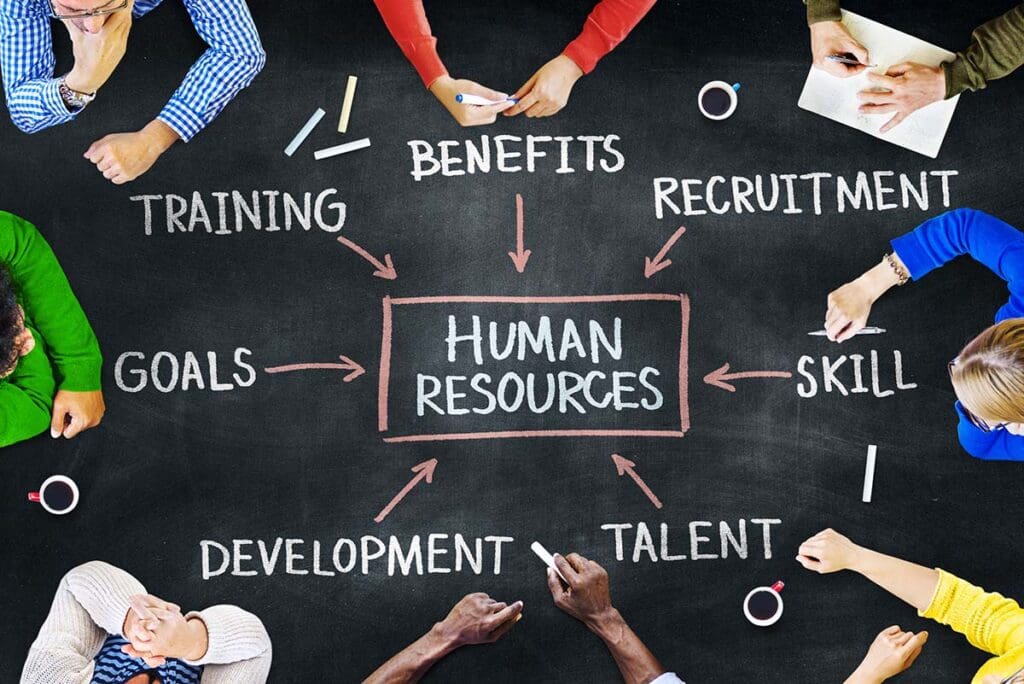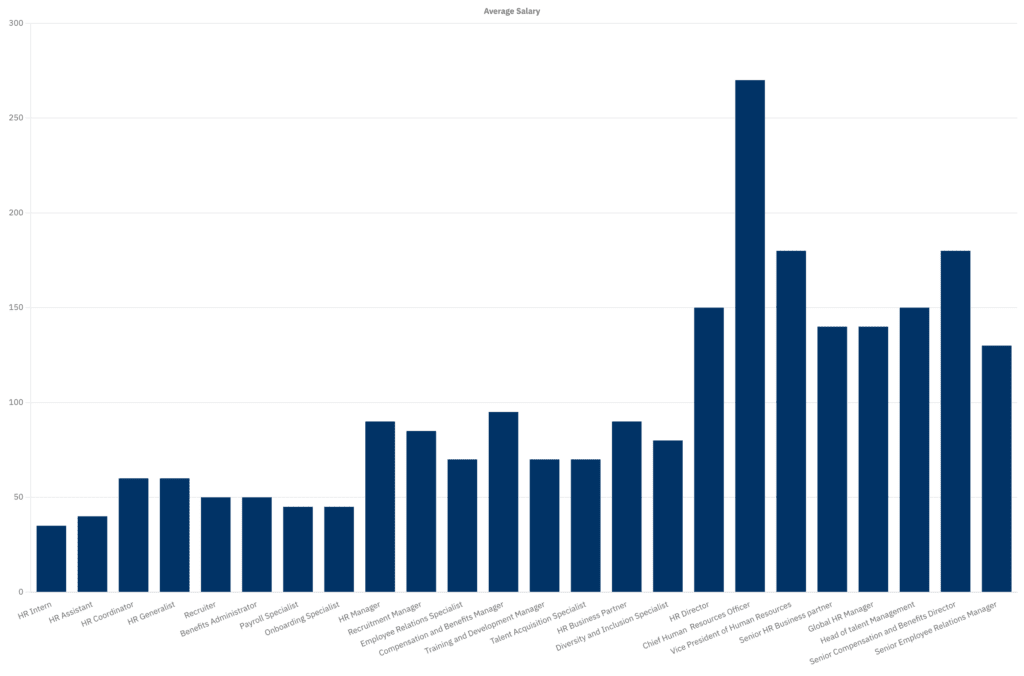Types of Human Resources Jobs | Integrus Solutions

Introduction
Human resources (HR) is so much more than just the department that handles hiring. It's about nurturing the heart and soul of a company—the people who make it run. If you’ve ever wondered what exactly HR does and how it impacts a business, you're in the right place. In this article, we’ll walk through the types of human resources jobs, explore how HR professionals help businesses thrive, and take a peek at the future of HR careers. Whether you’re looking to get into HR or just curious about how it all fits together, keep reading. By the end, you'll see just how much HR shapes the world we work in.
Overview
At its core, human resources is about managing and supporting an organization's most valuable asset—its people. This includes everything from recruitment and performance management to ensuring a positive company culture and compliance with labor laws. It’s a diverse field, with roles ranging from administrative to strategic, all working together to create a healthy work environment where employees can thrive.
Right now, HR is in the middle of a transformation. The days of just filling out paperwork and processing payroll are behind us. Today, HR professionals are working closely with company leadership to align people's strategies with business goals. With technological advancements, shifting work dynamics, and a focus on employee well-being, HR is more relevant and essential than ever.
What is Human Resources? And What Do They Do?
At its simplest, human resources involves managing the employee lifecycle—from hiring to offboarding. But there’s a lot more to it than just filling out forms or running payroll. HR is about ensuring that the right people are in the right positions, supporting them to do their best work, and fostering a positive work culture. This includes everything from recruitment, training, performance management, and conflict resolution to ensuring compliance with employment laws.
In today’s businesses, HR doesn’t just handle the paperwork. It’s about connecting the dots between employee satisfaction and company success. HR professionals are helping to create learning and development opportunities, implement feedback systems, and create policies that align with both business goals and employees' needs. HR is responsible for not only managing people, but also for empowering them to thrive in their roles.
How Human Resources Benefits and Impacts a Business
Think of HR as the bridge between the company and its employees. A lot of the time, the day-to-day impact of HR might go unnoticed, but it’s working behind the scenes to ensure everything runs smoothly. The impact HR has on a business can be huge—from reducing turnover to improving employee productivity.
For example, talent acquisition is a critical HR function that helps businesses hire the right people who fit with company culture. A bad hire can cost a company up to 30% of an employee’s first-year salary—and that’s just the financial cost. HR professionals use a range of strategies to reduce turnover, from improving hiring practices to offering professional development opportunities and building strong employee engagement programs. In fact, businesses that invest in onboarding and employee development see higher retention rates and more motivated employees.
HR also plays a vital role in maintaining compliance with labor laws. This protects companies from costly legal issues while ensuring that employees are treated fairly and equitably. For example, HR makes sure that companies stay up-to-date with everything from minimum wage requirements to health and safety regulations.
But beyond compliance and performance, HR’s role is increasingly tied to company culture and strategic business goals. With the rise of employee experience and a focus on mental health and well-being, HR is becoming a more strategic partner in driving business success.
Statistics on HR Impact on Businesses
- Companies that focus on employee engagement see 21% higher profitability.
- Strong onboarding programs can increase employee retention by 82%.
- Businesses in the top quartile for gender diversity are 25% more likely to be profitable.
By effectively managing talent, fostering development, and ensuring compliance, HR plays a key role in the long-term success of an organization.
24 Types of Human Resources Jobs and the Future Outlook for HR Careers
Entry-Level HR Positions
If you're just starting out in HR, these are the roles where you'll get your feet wet. You’re going to be learning a lot, getting your hands on all kinds of HR tasks, and figuring out where your strengths lie.
- HR Intern: This is the "get-your-hands-dirty" role where you’ll help with everything—recruitment, paperwork, and all the behind-the-scenes stuff. It’s the perfect way to learn the ropes!
- HR Assistant: You’ll be in the thick of it, managing records, scheduling, and doing the basic admin work that keeps HR running smoothly.
- HR Coordinator: Think of this role as the HR “organizer.” You’re handling everything from new hire paperwork to onboarding and making sure programs run like a well-oiled machine.
- HR Generalist: The “Jack of all trades” position. You’ll be doing a bit of everything—handling employee relations, benefits, recruiting—pretty much whatever needs to get done.
- Recruiter: You’re the one finding the talent! Sourcing candidates, running interviews, and being the person who gets people excited about joining the team.
- Benefits Administrator: If you like solving problems, this role might be for you. You’re helping employees understand their benefits and making sure everything’s running smoothly.
- Payroll Specialist: You’re the person making sure everyone gets paid correctly and on time—no pressure, right? But seriously, it’s a crucial role in keeping morale high.
- Onboarding Specialist: You’re the welcoming committee! You make sure new hires have everything they need to settle in and feel at home in the company.
Mid-Career HR Positions
By now, you’ve figured out the basics and maybe even developed a specialty. These roles are where you start taking on more responsibility and really shaping the company’s HR culture.
- HR Manager: You’re running the show here—overseeing day-to-day operations, managing the HR team, and making sure policies are followed. It’s a leadership role with a lot of moving parts.
- Recruitment Manager: You’re no longer just sourcing candidates—you’re leading the recruitment team and creating strategies to bring in the best talent.
- Employee Relations Specialist: You’re the person people go to when there’s a problem at work. Mediating conflicts, making sure everyone’s treated fairly, and keeping the peace.
- Compensation and Benefits Manager: Designing pay structures and benefits plans that keep employees happy and competitive with the market. You’re the one making sure employees are getting what they deserve.
- Training and Development Manager: Helping employees grow in their careers and improving skills through training programs. If you’re passionate about professional development, this is where you’ll thrive.
- Talent Acquisition Specialist: This is a more specialized role where you’re laser-focused on sourcing and recruiting top talent for specific positions or industries.
- HR Business Partner: You’re the bridge between HR and the business side of things, working with leadership to align HR strategies with the company’s goals. It’s all about strategy and being a trusted advisor.
- Diversity and Inclusion Specialist: Your job is to make sure the company culture is inclusive, diverse, and welcoming to everyone. You’ll develop strategies that ensure all voices are heard.
Senior HR Positions
You’ve been in the game for a while, and now you’re leading the way. These senior roles are all about driving company-wide strategy and having a big impact on how HR is done at the highest levels.
- HR Director: You’re in charge of HR across the entire company, creating strategies that align with the company’s goals, and leading the HR department like a pro.
- Chief Human Resources Officer (CHRO): You’re the top dog of HR. You shape the company’s overall HR strategy and manage the entire HR function—everything from recruitment to employee relations.
- Vice President of Human Resources: Similar to the CHRO, but usually focused on the broader strategy and the company’s long-term goals. You’re helping set the direction for the entire organization’s workforce.
- Senior HR Business Partner: You’re working closely with senior leadership, guiding HR strategies, and ensuring that everything HR does is aligned with the company’s larger mission.
- Global HR Manager: If you’ve got experience with international business, this could be your niche. You’ll manage HR operations across different countries and cultures, navigating local laws and practices.
- Head of Talent Management: You’re the one driving initiatives to attract, develop, and retain top talent. It’s a leadership role focused on growing the company’s most important asset—its people.
- Senior Compensation and Benefits Director: You’ll oversee the design and execution of the company’s entire compensation and benefits strategy, making sure it’s competitive and fair.
- Senior Employee Relations Manager: You’ll handle the most complex employee relations issues and develop strategies to improve the company culture and keep employees happy.
These roles show the evolution of an HR career, from hands-on, entry-level positions to high-level leadership roles. Whether you're just starting out or leading the HR department at a global company, there’s a lot of room to grow and specialize in a way that fits your strengths and interests. The journey can be super rewarding, and it’s a field where you can truly make a difference! Take a look at our salary chart down below!

The Future of HR Jobs
The HR field is evolving rapidly, with technology playing a larger role than ever before. We’re seeing the emergence of new positions like HR Technology Specialist or Employee Experience Manager, reflecting the growing reliance on data, AI, and automation. As companies move toward more remote and hybrid work environments, HR professionals will need to adapt to new ways of managing teams and maintaining company culture.
In addition, Diversity, Equity, and Inclusion (DEI) is becoming a central focus. More businesses are recognizing the importance of creating inclusive environments, and HR professionals who specialize in DEI will be in high demand. HR will continue to play a strategic role in shaping how companies navigate changes in the workforce and culture.
Emerging Roles
HR professionals with skills in data analytics, technology integration, and employee experience will be well-positioned for success. With the rise of AI and automation, HR tasks that once took hours are now becoming more efficient, freeing up HR professionals to focus on higher-level, human-centered work.
Summary
- HR is vital to an organization’s success, with roles ranging from HR Assistant to CHRO.
- The future of HR is evolving, with technology, data, and strategic decision-making taking center stage.
- Businesses benefit from HR through improved employee engagement, reduced turnover, and stronger compliance.
- The growing focus on diversity, equity, and inclusion means HR professionals with DEI experience will be in high demand.
- HR roles focused on employee experience and technology integration are expected to see strong growth.
Work With Integrus Solutions!
Looking to strengthen your team or improve your HR strategy? Integrus Solutions can help provide you with top talent recruits for your business. Our expert HR consultants are here to guide you through every step of the process, from HR recruitment to building a strong company culture. If you are interested in joining our team as an HR professional, we are currently hiring as well! Get in touch with us today to learn more about how we can support your business. You can contact us or give us a call at (713) 955-7444 to answer any of your questions!
